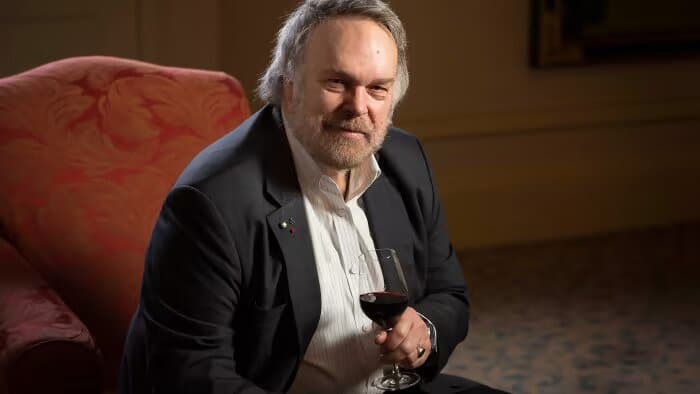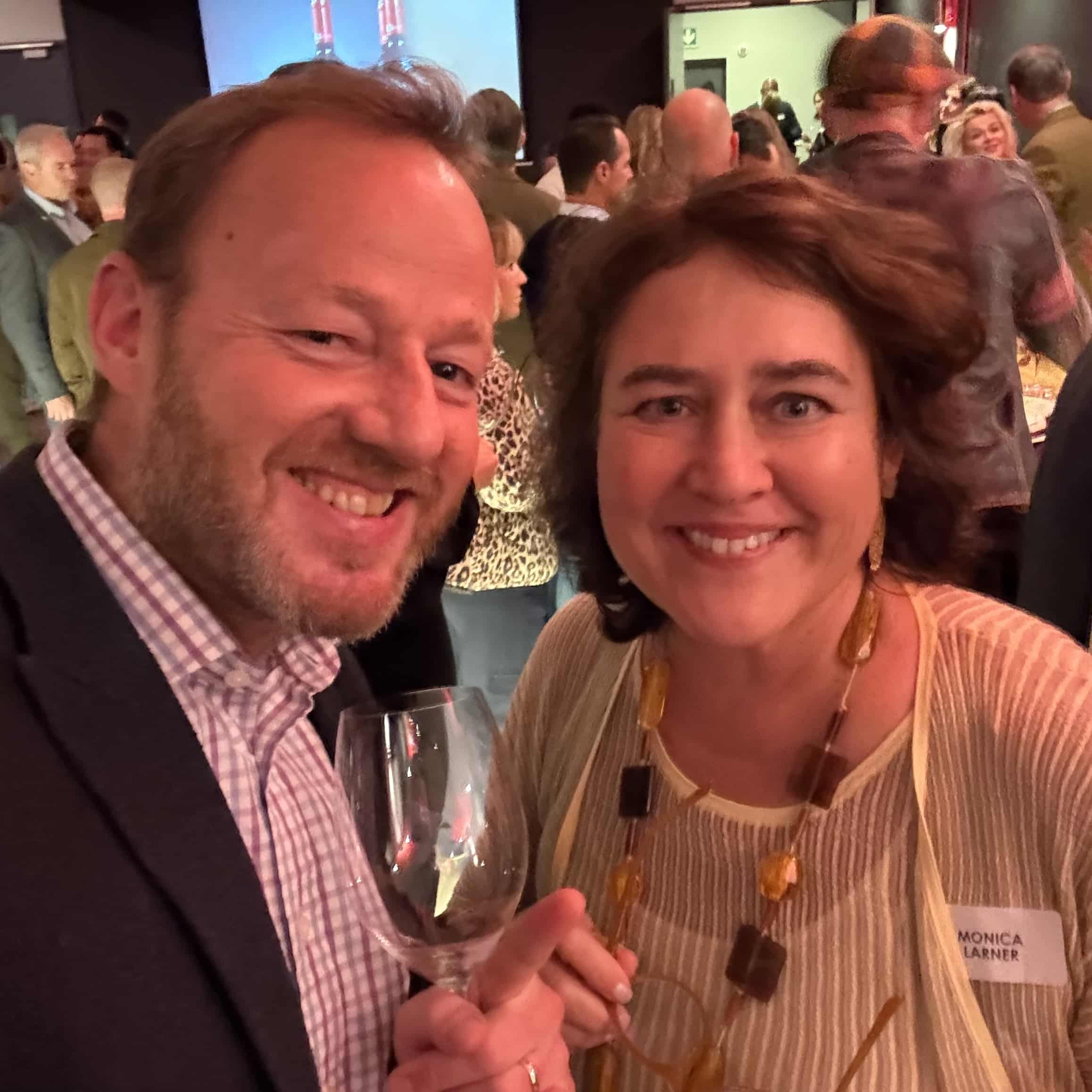 Robert Parker Jr.
Robert Parker Jr.
After Robert Parker Jr’s retirement from The Wine Advocate wine journal, many periphery wine commentators were quick to predict the quickening demise of influential, critical, industry-moving wine writing. Robert “Bob” Parker had practically single handedly created, or at least perfected, the art of marrying incredibly illustrative, evocative and descriptive wine writing and analysis with the all-important 100-point scoring system. Undoubtedly game changing in the time of the early to mid-1980s.
It is almost overwhelming to think of all the professional wine critics and amateur wine enthusiasts Bob Parker inspired around the world. Love him or hate him, anyone writing about wine or rating and reviewing wines in any way, must surely owe Bob some kind of thanks.
Robert Parker Jr. formally retired from The Wine Advocate back in May 2019 after gradually stepping back from his duties for several years. Parker, who founded the publication way back in 1978, eventually sold his controlling stake in 2012 and relinquished his tasting and editorial responsibilities to his wider team, citing his declining physical health as a primary reason for his retirement.
Robert Parker had been steadily scaling back his involvement with The Wine Advocate for years, with his role in reviewing wines diminishing well before his official retirement. His full departure came in 2012, when he sold his controlling interest in the publication to a group of Asian investors; five years later, the Michelin Guide went on to acquire the company in its entirety.
I, for one, followed the unfolding events closely, not only because I had studied with Lisa Perrotti-Brown at the Institute of Masters of Wine, who by then had become editor while still based in Singapore, but also because I was a good friend of Neal Martin, whom we all suspected would, and ultimately did, be anointed as Parker’s chosen heir – the “Don Corleone” of lead reviewers at The Wine Advocate.
Martin, of course, had his own valid reasons for leaving The Wine Advocate “family” to join former colleague – and, to some, the ex-Wine Advocate “Judas” – Antonio Galloni at Vinous.com. The site quickly established itself as a dynamic, multi-media platform that appeared to capture the most valuable qualities and original DNA of the “old” Wine Advocate, while evolving into a fast-growing, fast-paced, and influential voice in the world of fine wine.
I won’t deny I was shocked to my core remembering Neal tell us he had decided to leave the Wine Advocate, after all, HE WAS going to be the next Robert Parker. But of course, in hindsight, he was probably correct in his judgment. There can only be ONE Robert Parker Jr. and anyone coming after Bob would never really be able to fill his shoes. Neal correctly decided he needed his own pair of shoes, ones that would fit his style of writing, his way of reviewing and his own musically tinged wine mojo. A worthy lesson many imitators or successors might also choose to keep in mind.
Neal’s departure from the Wine Advocate was no doubt traumatic for him, but it was also incredibly troubling for the entire South African fine wine world that felt that they had only just started to win Neal over before his baton was passed on yet again to ex-sommelier reviewer Anthony Mueller.
Being careful to judge people too harshly without meeting them first hand, I remember being incensed by Anthony’s long overdue first South Africa Report for the Wine Advocate. Indeed, I admittedly described his first ratings as the product of “a rabbit in headlights”… startled and detached from reality, and indeed damaging to the wider South African marketing push in the large and lucrative American market.
I guess it’s easy to be critical. Writing about the wines and producers of any country takes years of deeper insight and understanding to truly get to grips with the essence of a nation. For the complicated and diverse South African wine industry, you can probably double the learning time and lengthen the required learning curve.
To Anthony’s credit, his swan song report finally started to reveal glimmers of a deeper understanding, a heartfelt love and understanding of the country, its ingrained problems, historical baggage, as well as its desperate desire to cast off these shackles and free itself in a brave new world of fine wine. In his final report, almost as an act of contrition, Anthony handed out a plethora of high scores to some of South Africa’s most notable premium producers. Once he was blind… but now he sees! The feeling reading that last report was almost like biblical redemption.
But like many wine critics, Anthony’s time at the Wine Advocate eventually ran out as he moved on to other vinous pastures. Thankfully, the gods were kind, and prayers were answered when Monica Larner was appointed as the Wine Advocate’s South Africa reviewer. I still recall legions of English and Afrikaans fine wine collectors in London expressing their relieved approval when Monica was announced. “Anyone who can understand austere pithy Italian white wines grown on Galestro will undoubtedly be seduced by old vine Chenin Blanc on deep decomposed granite soils” was the siren cry!

Greg Sherwood and Monica Larner.
It was of course my great pleasure to bump into Monica Larner again at CapeWine 2025, as she mulled about the exhibition hall tasting with near anonymity while clearly aware of the power and influence that lay in her pen. Monica is an exceptional taster, but not only that, she has a palate capable of appreciating the truly classical as well as the more opulent styles of a warm winemaking nation like South Africa. After all, Italy’s vintages, where Monica lives, are not all that divergent from those of the Cape.
Robert Parker Jr. is still considered a highly influential figure in the wine world, and his retirement marked the end of an era for his legacy and the impact he had on the styles of wines produced globally. He never really got to grips with South African wines personally, but in his wake, he has left a legion of influential critics all passionately enthusiastic about South Africa and its incredible fine wines.
Greg Sherwood was born in Pretoria, South Africa, and as the son of a career diplomat, spent his first 21 years traveling the globe with his parents. With a Business Management and Marketing degree from Webster University, St. Louis, Missouri, USA, Sherwood began his working career as a commodity trader. In 2000, he decided to make more of a long-held interest in wine taking a position at Handford Wines in South Kensington, London, working his way up to the position of Senior Wine Buyer over 22 years. Sherwood currently consults to a number of top fine wine merchants in London while always keeping one eye firmly on the South African wine industry. He qualified as the 303rd Master of Wine in 2007.

Dining and Cooking